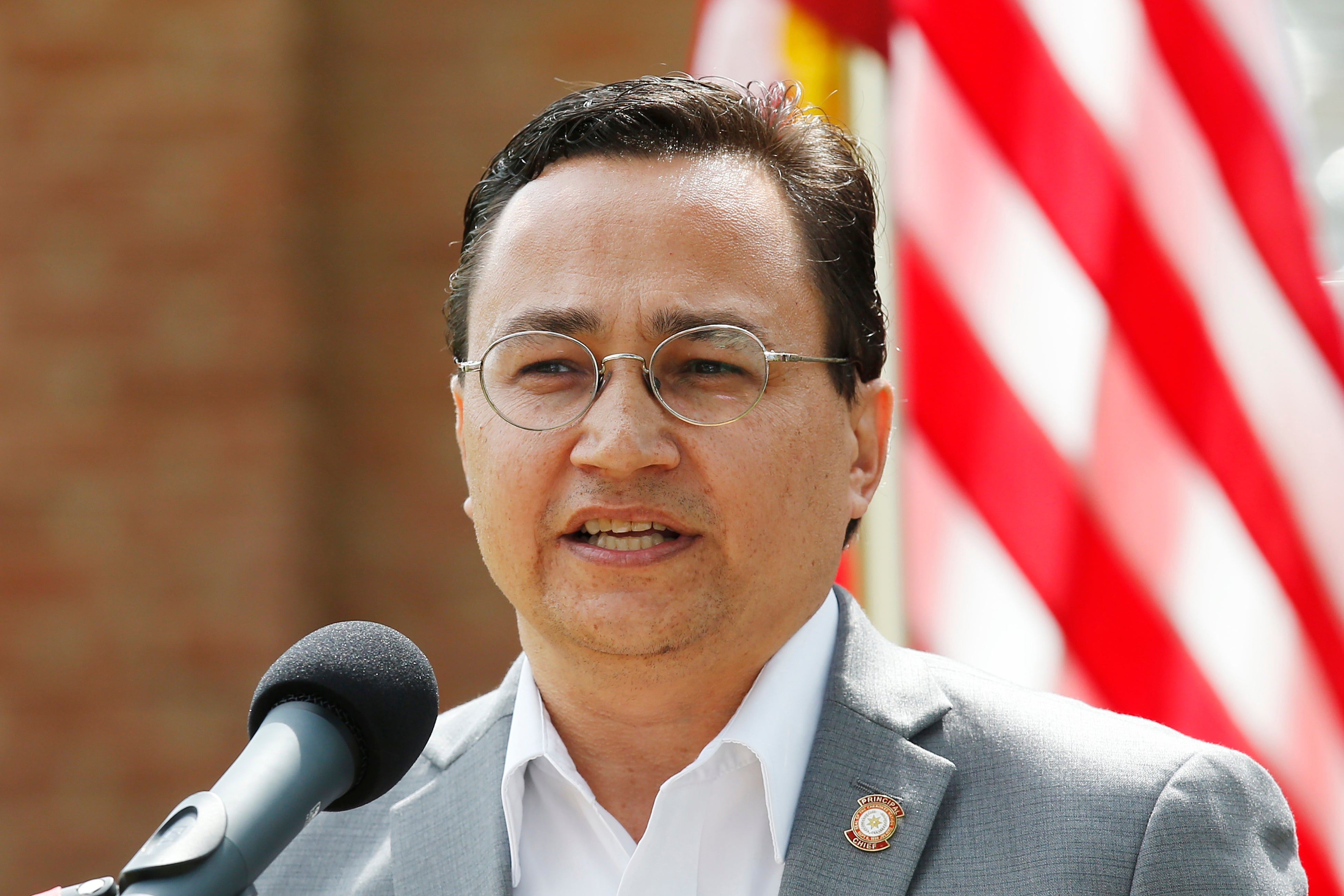Chief of Cherokee Nation demands Jeep stop using ‘culturally appropriated’ name
‘It does not honour us by having our name plastered on the side of a car,’ says chief Chuck Hoskin Jr

Your support helps us to tell the story
From reproductive rights to climate change to Big Tech, The Independent is on the ground when the story is developing. Whether it's investigating the financials of Elon Musk's pro-Trump PAC or producing our latest documentary, 'The A Word', which shines a light on the American women fighting for reproductive rights, we know how important it is to parse out the facts from the messaging.
At such a critical moment in US history, we need reporters on the ground. Your donation allows us to keep sending journalists to speak to both sides of the story.
The Independent is trusted by Americans across the entire political spectrum. And unlike many other quality news outlets, we choose not to lock Americans out of our reporting and analysis with paywalls. We believe quality journalism should be available to everyone, paid for by those who can afford it.
Your support makes all the difference.The chief of the Cherokee Nation has called on carmaker Jeep to change the name of two of its best-selling SUV models, saying that naming them after the Native American tribe amounts to cultural appropriation.
“I’m sure this comes from a place that is well-intended, but it does not honour us by having our name plastered on the side of a car,” Chuck Hoskin Jr told the magazine Car and Driver in a written statement.
“The best way to honour us is to learn about our sovereign government, our role in this country, our history, culture, and language and have meaningful dialogue with federally recognised tribes on cultural appropriateness,” he said.
The Cherokee and Grand Cherokee are two of Jeep’s best-selling vehicles and together made up more than 40 per cent of Jeep’s total sales in 2020, according to Car and Driver. The company has been using the Cherokee name on its vehicles since the 1970s, with the Jeep Cherokee introduced in 1974. The company dropped the name in 2001, but reintroduced it in 2013.
“Our vehicle names have been carefully chosen and nurtured over the years to honour and celebrate Native American people for their nobility, prowess, and pride,” Kristin Starnes, a spokesperson for Stellantis, Jeep’s parent company, said in a statement. “We are, more than ever, committed to a respectful and open dialogue with Cherokee Nation principal chief Chuck Hoskin Jr,” the carmaker said.
Chief Hoskin told CNN the name was part of their identity and the tribe had a stronger claim to it.
“It’s one of the most valuable things. It’s a part of our identity. And if we wanted to match up who had the stronger claim and connection and affinity for the Cherokee name it would certainly be the Cherokee people,” he said.
There has been a pushback in recent years over branding and organisation names that are seen as perpetuating racial injustice, particularly as part of the Black Lives Matter movement after the death of George Floyd.
Washington’s NFL team has said they will call themselves the Washington Football Team pending adoption of a new name, after year’s of demands from Native American groups to retire the name Redskins.
The Cleveland Indians announced last year they would change their name after 105 years, following decades of campaigning by Native Americans.
Among other organisations that have recently rebranded or repackaged are Land O’ Lakes, which removed an image of a Native American woman from its label, Uncle Ben’s rice and Aunt Jemima syrup and pancake mix.




Join our commenting forum
Join thought-provoking conversations, follow other Independent readers and see their replies
Comments